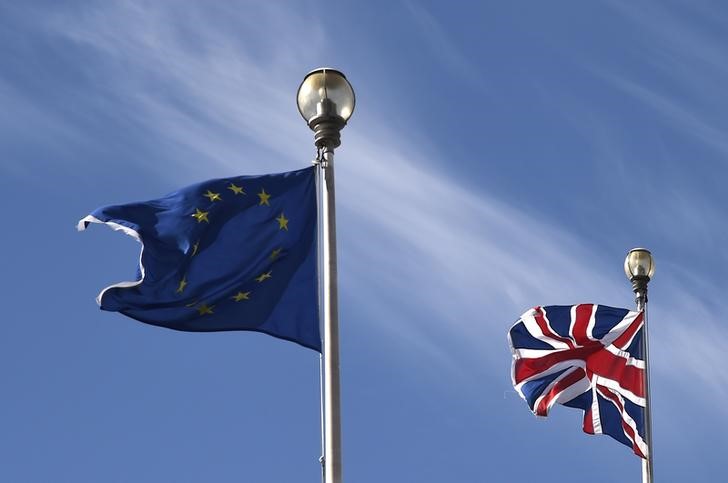By Laura Gardner Cuesta
LONDON (Reuters) - The conduct of Britain's EU referendum showed "glaring democratic deficiencies," according to a report on Thursday by the Electoral Reform Society (ERS), which called for a review into how referendums are run.
People felt they lacked clear information about the vote and that big personalities failed to engage or convince them, polling for the report showed.
Both those campaigning to remain and to leave were seen to become increasingly negative as the debate wore on.
"This report shows without a shadow of a doubt just how dire the EU referendum debate really was," said Katie Ghose, Chief Executive of the society. "There were glaring democratic deficiencies in the run-up to the vote, with the public feeling totally ill-informed."
In contrast with the "vibrant, well-informed, grassroots conversation" during the 2014 Scottish independence referendum, Ghose said the EU referendum was seen as a “top-down, personality-based” debate.
The United Kingdom voted to leave the European Union on June 23 by 51.9 to 48.1 percent, but regional differences were stark. Scotland and Northern Ireland distinctly backed remain, whilst England and Wales voted to leave.
The ERS, a pressure group promoting democratic reform, suggested referendums should be at least six months long and that an official public body should have the power to intervene when misleading claims were made.
Both sides in the EU referendum came under fire for making claims that were widely seen as lacking evidence.
These included the Leave camp’s statement that the UK’s gross contribution to the European Union, 350 million pounds a week, could be spent on the National Health Service, and Treasury figures purporting to show that people would be 4,300 pounds a year worse off outside the EU.
The intervention of important personalities on each side of the debate appeared to have a minimal effect, the ERS said.
If anything, people said interventions by every personality, including United States president Barack Obama’s support for remain, had made them more likely to vote leave.
"Now that the dust is starting to settle after the EU referendum, we need a complete rethink about the role of referendums in the UK," said Ghose in a statement.
"It's time for a root and branch review of referendums ... They are becoming more common, but the piecemeal nature of the how, when and why they’re done means we could simply end up jumping from referendum to referendum at the whim of politicians."
